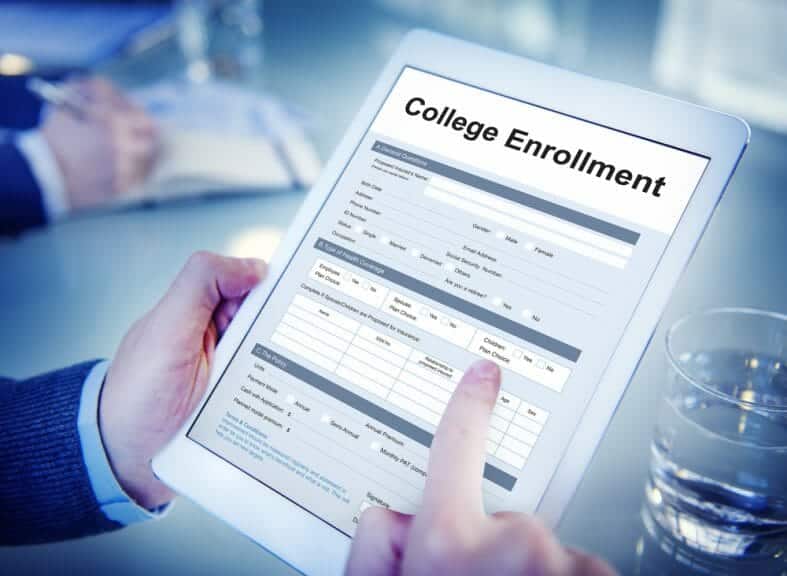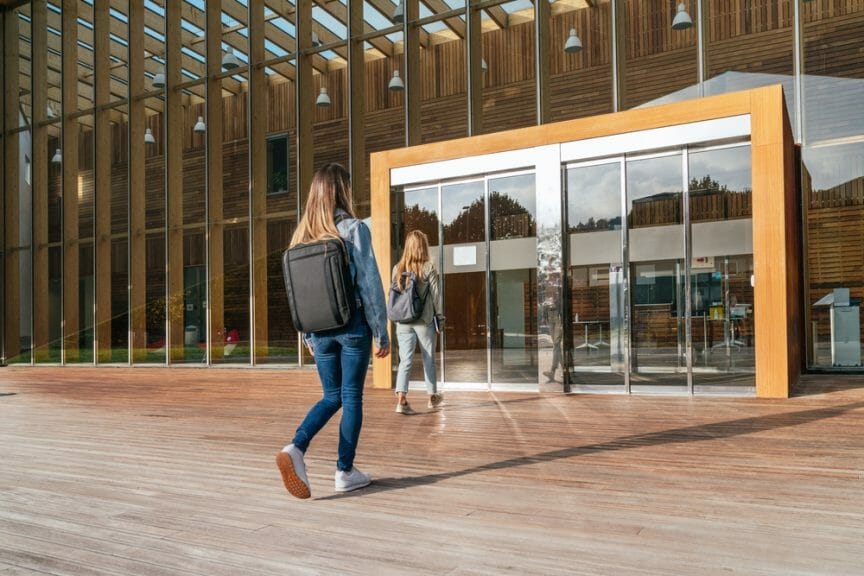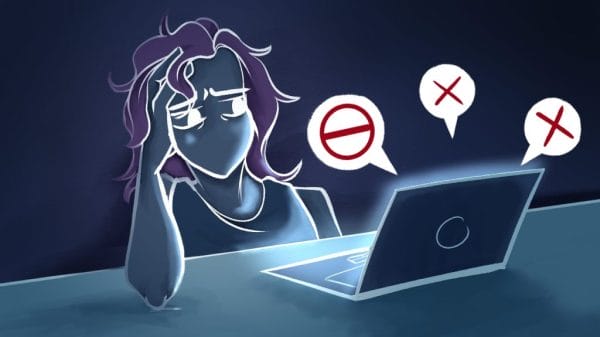US college enrollment is starting to stabilize after a multiple-year decline, according to a report released by the National Student Clearing House last month.
After a 2-year decline due to the Covid-19 Pandemic, total enrollment for fall 2022 dipped by less than one percentage point from the previous year. Further, undergraduate enrollment for first-year students increased by 4.3%, according to the report.
Much of college enrollment’s stabilization came from undergraduate enrollment leveling out. After two straight years of undergraduate enrollment dropping by more than 3.5%, in fall 2022, undergraduate enrollment only decreased half a percentage point from the previous year. The inverse was the case for graduate enrollment. Graduate enrollment saw increases between 2019 and 2021, only to decrease by 1.2% in fall 2022.

Even with college enrollment levels starting to stabilize, they are nowhere near pre-Covid levels. In fact, from 2019 to 2022, undergraduate college enrollment declined by 1.2 million students, or nearly 8%, according to the National Student Clearing House’s report.
Doug Shapiro, the executive director of the report, told NPR that colleges are still a long way from those pre-Covid levels.
“It’s very encouraging to start seeing signs of a recovery here, even though there’s still a long way to go before freshman classes return to their 2019 levels,” Shapiro told NPR.
Doug Shaprio . NPR

It remains to be seen whether enrollment will ever climb back to those 2019 levels, either. According to a National Center for Education Statistics study, college enrollment has declined by almost 10% from fall 2012 to fall 2022.
This means that, on average, fewer people are opting to attend college today than in 2012. Far fewer people are opting to attend college today than in 2019, which begs the question: Why are young adults passing on college?
Opting out of college: “It took a while to believe I was good enough.”

For those like Woodland Johnson, going to college was always a given. College was always framed as the essential step to getting a job – like without a degree, fulfilling work was impossible.
“Before Covid, I don’t think I ever thought about not going to college,” Johnson said. “It was sort of just something my parents and I assumed would happen because that’s what you did after high school. The pandemic changed a lot of that for me.”
Johnson said that when lockdown threw his senior year of high school into disorder, one of the first things he thought about was whether the college would still be a viable option. While he knew he couldn’t predict the future of education, the possibility of schooling looking drastically different – as it would look – during his first year of college was enough for him to start considering other paths after high school.

“It really forced me to think about all my options. I sat down with my parents and said to them, ‘hey, I’m thinking about taking a year off from college while things are crazy.’ It was the first time anyone in our house had even mentioned the idea,” Johnson said.
Woodland Johnson
I asked Johnson how his parents took that initial conversation. He admitted they were a little slow to come around at first. He said that initially, they were bummed, which made him feel bad. But as the year went on, Johnson started to get serious about starting full-time work after graduation. While he didn’t land his dream job immediately, he eventually worked as an administrative assistant for a retail company in his hometown.
“The job search was tough. At first no one was hiring. Then, I couldn’t get a response, even when people were hiring,” Johnson said. “But eventually things worked out. It took a while for me to believe that I was good enough.”
Woodland Johnson

Johnson said he’s “grateful” the pandemic gave him a chance to rethink going to college, and he knows many other people are in his position. When I asked him why he decided not to go to college, he told me that the two most significant factors were developing hard skills and not having the stress of school.
“Why didn’t I go? I guess I just wanted to learn the hard skills most beginner jobs ask for. And I didn’t want all the stress that comes with school, either. My parents give me enough of that.”
Woodland Johnson














